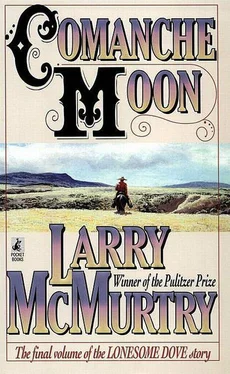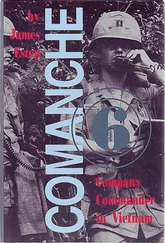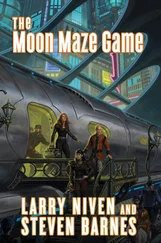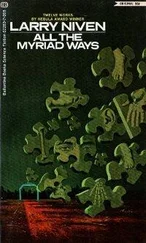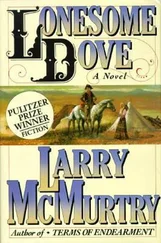One of the reasons he had agreed to track Captain McCrae was because once the job was finished he could go on and investigate the river country a little--he wanted a place where he would not be bothered by irritable Comanches or the continual movement of the whites. He was hoping to find a place with a high mountain nearby. He thought it might be good to sit high up once in a while.
If he was high enough there would be nothing to see but the sky and, now and then, a few of the great eagles.
He thought living in a place where there were eagles to watch might encourage some pretty good dreams.
Augustus had always enjoyed calendars and almanacs--he rarely journeyed out of Austin without an almanac in his saddlebag. If he did any reading at night around the campfire it was usually just a page or two of the current almanac. Often he would discover that, on the very day he was living, the signs of the zodiac were in disorder, causing dire things to be predicted.
If the predictions were especially dire-- hurricanes, earthquakes, floods--Gus would amuse himself by reading aloud about the catastrophes that were due to start happening at any moment. If he saw a heavy cloud building up he would inform the men that it was probably the harbinger of a forty-day flood that would probably drown them all. Many of the rangers were unable to sleep, after one of Gus's readings; those who knew a few letters would borrow the almanac and peer at the prophetic passages, only to discover that Augustus had not misread. The terrible predictions were there, and, inasmuch as they were printed, must be true.
When nothing happened, no flood, no earthquake, no sulphurous fire, Augustus suavely explained that they had been spared due to a sudden shifting in the stars.
"Now you see the planet Jupiter, right up there," he would say, pointing straight up into the million-starred Milky Way; he knew that most of the men would not want to admit that they had no idea which star Jupiter might be.
"Well, Jupiter went into eclipse--I believe it was a double eclipse--y won't see that again in your lifetime, and it's all that saved us," he would conclude. "Otherwise you'd see a wall of water eighty feet high coming right at us," he would remark, to his awed listeners, some of whom thought that the mere fact that he was a captain meant that he understood such things.
Pea Eye had that belief, for a while, and worried much about the floods and earthquakes, but Call, who put little stock in almanacs, reproached Gus for scaring the men so.
"Why do you want to tell them such bosh?" Call would ask. "Now they'll lose such little sleep as we can allow them." "Tactics, Woodrow--tactics," Gus would reply. "You need to finish that book on Napoleon so you'll understand how to use tactics, when you're leading an army." "We ain't an army, we're just ten rangers," Call would point out heatedly, to no avail.
Since Augustus was travelling alone this time, he didn't try to frighten himself with dire predictions, but he did keep a close calendar as he travelled west. He wanted to know how many days from home he had come, in case he developed a strong nostalgia for the saloons and whorehouses of Austin and needed to hurry home.
On the twelfth day, with a few mountain crags visible to the north, Augustus picked his way along the banks of the Rio Grande, to the campsite where, long before, as a fledgling ranger, travelling far from the settlement for the first time, he and Call, Long Bill, and a number of rangers now dead had camped and waited out a terrible dust storm. A fat major named Chevallie had been leading them; Bigfoot Wallace and old Shadrach, the mountain man, had been their scouts.
In the morning before the storm struck, Matty Roberts, naked as the air, had picked the big snapping turtle out of the river, carried it into camp, and threw it at Long Bill Coleman and One-eyed Johnny Carthage, both of whom owed her money at the time.
Augustus recognized the little scatter of rocks by the water's edge where Matty had found the turtle; he recognized the crags to the north and even remembered the small mesquite tree--st small--where he and Call had snubbed a mustang mare they were trying to saddle.
No trace of the rangers' presence remained, of course, but Augustus was, nevertheless, glad that he had come. Several times in his life he had felt an intense desire to start over, to somehow turn back the clock of his life to a point where he might, if he were careful, avoid the many mistakes he had made the first time around. He knew such a thing was impossible, but it was still pleasant to dream about it, to conjure, in fantasy, a different and more successful life, and that is what he did, sitting on a large rock by the river and watching the brown water as it rippled over the rocks where Matty had caught the turtle.
While he sat Gus noticed a number of snapping turtles, no smaller than the one Matty had captured; at least things were stable with the turtles.
While the river flowed through the wide, empty landscape a parade of dead rangers streamed through the river of his memory--Black Sam, Major Chevallie, One-eyed Johnny, Bigfoot Wallace, Shadrach, the Button brothers, and several more. And now, by Goodnight's account, Matty Roberts herself was dying, which of course was not wholly surprising: whores as active as Matty had been were seldom known to live to a ripe old age. For a moment he regretted not going with Goodnight, over the dry plains to Denver. He would have liked to see Matty again, to lift a glass with her and hear her thoughts on the great game of life, now that she was about to lose it.
She had always hoped to make it to California someday, and yet was dying in Denver, with California no closer than it had been when she was a girl.
"If I could, Matty, I'd buy you a ticket on the next stage," Augustus said, aloud, overcome by the same regretful emotion he had felt when he pressed the sixty dollars into Charles Goodnight's hand.
Later in the day Gus walked away from the camp, attempting to locate the rocky hillock where he had first come face-to-face with Buffalo Hump. It had been stormy; the two of them had seen one another in a lightning flash. Gus had run as he had never run in his life, before or since, and had only escaped because of the darkness.
Because it had been so dark, he could not determine which of the rocky rises he was looking for, though no moment of his life was so clearly imprinted on his memory as the one when he had seen, in a moment of white light, Buffalo Hump sitting on his blanket. He could even remember that the blanket had been frayed a little, and that the Comanche had a rawhide string in his hand.
When he tired of his search he caught the black mare and rode on west a few miles, to the high crag of rock where the Comanches had lured them into ambush. A few warriors had draped themselves in white mountain-goat skins, and the rangers had taken the bait. Gus himself had only survived the ambush because he stumbled in his climb and rolled down the hill, losing his rifle in the process.
Augustus tied his horse and climbed up to the boulder-strewn ridge where the Comanches had hidden. In walking around, he picked up two arrowheads; they seemed older than the arrowheads the Comanches had used that day, one of which had to be extracted from Johnny Carthage's leg, but he could not be sure, so he put the arrowheads in his pocket, meaning to show them to someone more expert than himself. It might be that the Comanches had been fighting off that crag for centuries.
As Augustus was walking back down the hill to his horse, his eye caught a movement far to the east, from the direction of the old camp on the river. He stepped behind the same rock that had shielded him long ago and saw that two men approached, one on horseback and one on foot. He didn't at first recognize the horse and rider, but he did recognize the quick lope of the man on foot--Famous Shoes' lope. His first feeling was annoyance: Woodrow Call had had him tracked at a time when all he wanted was a few days to himself.
Читать дальше
